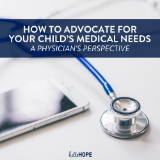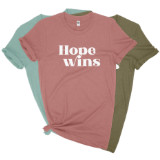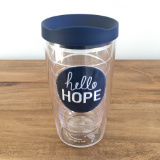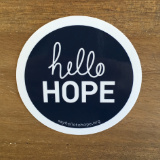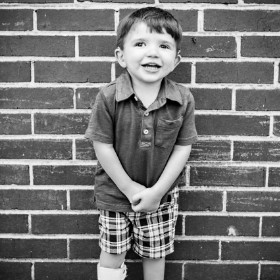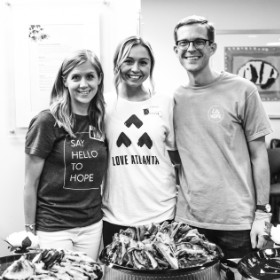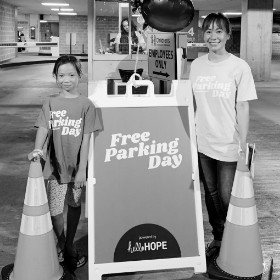Hope in Real Life: Finding Grace and Encouragement in Difficulty
Each family’s journey with medical challenges is different and typically involves new experiences like tests, early morning or late night trips to the hospital, and, for some, hospital stays. It’s one thing to go through a new experience yourself, but it’s completely different to help a baby, toddler, or school-aged kiddo through one of these experiences. I found myself asking questions like this on a regular basis: What should I expect? What if my experience isn’t the norm? What about families going through “worse” situations than us? How do I prepare Audra for what’s going to happen when I’m not even sure what to expect?
I remember pulling into the parking garage at our local children's hospital early one morning to take Audra in for one of her first procedures. As I turned around to unbuckle her in the back seat, I noticed another car close by that had clearly been there a while before us. They had blankets, snacks, and supplies to make themselves more comfortable, and they looked like they had been through the routine before.
In a way it was comforting to see another family there that early in the morning because I knew we weren’t alone. At the same time my heart filled with compassion because it seemed pretty clear that the challenges they were facing were more severe than ours. By comparison, our early morning at the hospital — for a procedure that we could go home after — suddenly seemed like less of an ordeal. But I still knew that the morning ahead presented some tall mountains of fear and anxiety to climb.
The problem with comparison
What we were going though was difficult, and undoubtedly, it was the same for the family in the car next to us. So why did I have the immediate reaction to compare our situations? Even though we weren’t arriving for an extended stay at the hospital, the nerves and fears of our morning’s plans were still very real.
If you’ve been through medical difficulties, it can be tempting to look down on others who haven’t experienced something similar. I have personally found myself working through judgemental attitudes or self pity during those times. By the same token, looking at people who have it “worse” can cause me to ignore my emotions and not lead my family well. Neither of these options put my heart in a place to pay attention to the needs of my family and the Lord’s presence with us.
I don’t think there’s anything inherently wrong with looking at other people's circumstances, but times when I’ve been caught in a cycle of comparison pulled my focus off of the Lord’s leading in our situation.
Learning compassion through difficulty
No matter where you are in your medical journey, there will always be someone that’s been through less than you and someone that’s been through more than you. The reality is that your experience, my experience, and your neighbor’s experience with medical challenges is important. Your story matters.
I remember the first tests that we went through with Audra. Seeing her grapple with fear and pain made my stomach drop, and I kicked immediately into “protective dad mode” many times. Even as we continued our journey to more severe tests, those feelings still welled up in me. So is one procedure or experience any less “real” of an experience than another? Not really. The intensity or circumstances may change, but your story is still important.
Don’t be tempted to downplay your situation simply because someone is going through something different than you. Your experience is real, and the Lord wants to meet you in it. Regardless of the situation. Regardless of the emotions.
At the same time, look up to the families you meet that have gone through more than you. They are wonderful examples of endurance, grace, and love. One of the most rewarding things about working on helloHOPE is meeting the amazing families that have or are walking through medical adversity with hope. They are heroes to me, and my life is richer having met them and seen the Lord’s faithfulness in their life.
If you feel like your experience is on the more severe end of the spectrum, know that your example can be one of hope and encouragement for others around you. We certainly don’t have all the answers on why difficulty hits, but we’ve seen many lives changed because of hope in adversity.
I believe that the Lord wants to break cycles of comparison and give us the grace to spread hope with a heart of compassion.
You can read more about our story with Eosinophilic Esophagitis (EoE), or if you’re in the middle of a medical journey right now, you may find hope in this post on finding the strength to overcome.





